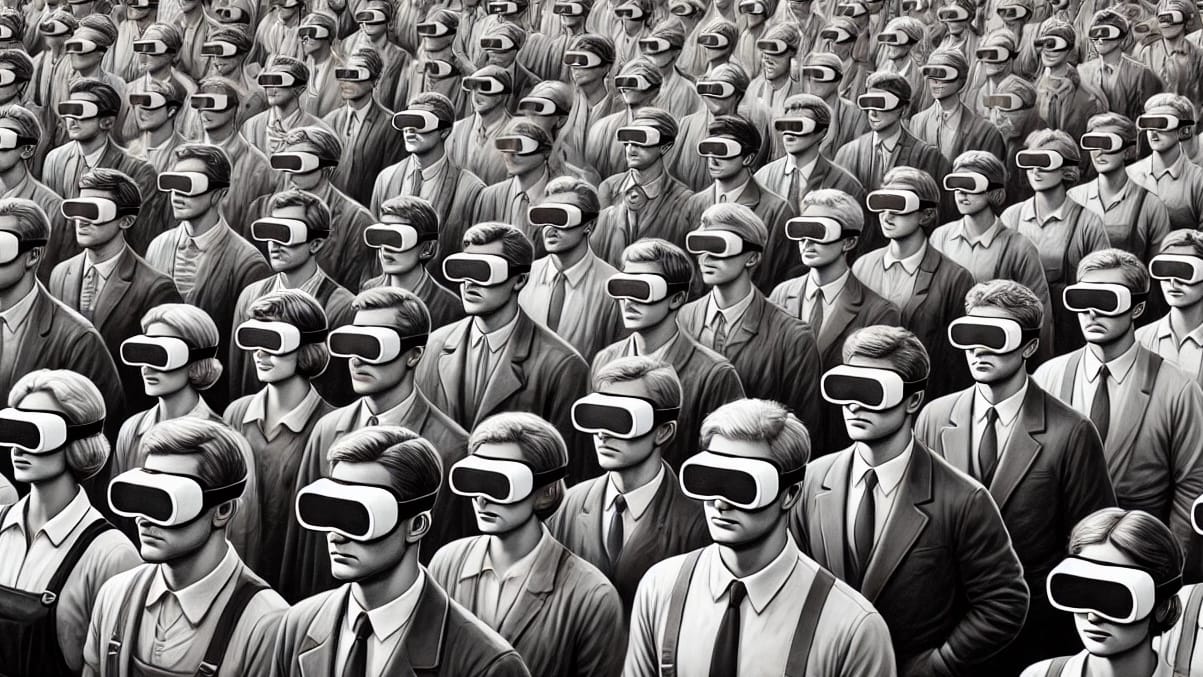- Silverberg on reality vs. fantasy;
- It wasn’t a landslide, thus not a mandate;
- OnlySky: why is fascism rising?
- OnlySky: how knowledge endures or disappears.
Here’s a passage from a key science fiction story that addresses the nature of reality, in a metafictional way, that also addresses the dreams of science fiction versus the likely reality that most of those dreams will never come true. This is Robert Silverberg’s “Schwartz Between the Galaxies,” published in 1974, opening:
This much is reality: Schwartz sits comfortably cocooned — passive, suspended — in a first-class passenger rack aboard a Japan Air Lines rocket, nine kilometers above the Coral Sea. And this much is fantasy: the same Schwartz has passage on a shining starship gliding silkily through the interstellar depths, en route at nine times the velocity of light from Betelgeuse IX to Rigel XXI, or maybe from Andromeda to the Lesser Magellanic.
(Of course there’s an irony that even the “reality” of this passage, about passenger rockets arcing over the Earth faster than our current jet airliners, will also likely never happen.)
The story goes on:
There are no starships. Probably there never will be any. Here we are, a dozen decades after the flight of Apollo 11, and no human being goes anywhere except back and forth across the face of the little O, the Earth, for the planets are barren and the stars are beyond reach. …
Beginning in the 1960s and usually labeled the “New Wave,” a subset of science fiction began expressing doubts about the bright optimistic interstellar futures of earlier science fiction. Fantasy giving way to reality.
\\\
It wasn’t a landslide. Many votes come in late every year, and shift the initial outcome. It’s happened before, even as Trump rages about fraud and stolen elections.

NY Times, Peter Baker, 22 Nov 2024: The ‘Landslide’ That Wasn’t: Trump and Allies Pump Up His Narrow Victory, subtitled “The latest vote count shows that Donald J. Trump won the popular vote by one of the smallest margins since the 19th century. But Mr. Trump claims a ‘powerful mandate.'”
Of course Trump doesn’t know what “mandate” means and doesn’t care; he just wants an excuse to execute all his policies.
Mr. Trump’s 1.6-point victory is smaller than that of every winning president since 1888 other than two: John F. Kennedy in 1960 and Richard M. Nixon in 1968. In addition, two presidents won the Electoral College while losing the popular vote: the second Mr. Bush in 2000 and Mr. Trump in 2016.
For lots of charts, see Politifact: How big was Donald Trump’s 2024 election victory? 8 charts explain.
\\\
Now a couple deep dives from OpenSky.

OnlySky, Brian Fogarty, 22 Nov 2024: Watering the seeds of our own destruction, subtitled “There’s a reason fascism is rising at this moment, and why the threat will continue into the future.”
The writer notes,
Almost half the voters voted against Trump, and with passion. Most of the Democrats’ policy positions are supported by most of the public, many by large majorities. And this is no landslide; we have seen much more lopsided elections.
Still, there seems to be a trend.
But the collapse of American democracy is not unique. French voters struggled to hold off Marine Le Pen’s National Rally (again) in their recent election. Far-right parties have substantial roles in the governments of Italy, Finland, Slovakia, Sweden, Hungary, Croatia and the Czech Republic. Geert Wilders’s Party for Freedom has the whip hand in the Netherlands parliament. And Germany! Actual Nazis are demanding an end to teaching about the Holocaust in schools, while Chancellor Olaf Schultz’s Social Democrats are polling in third place behind the far-right Alternative for Germany.
This is not just an American phenomenon. It’s Europe, too. There’s something going on, deep in all of these democracies. Suspicion of all institutions. Rejection of reason. Hatred of democracy. It’s not just a threat to American dominance, it’s a threat to the idea that democracy is the pinnacle of political evolution.
And how fascism almost always rises from democracies. So what’s the big picture?
To paraphrase Karl Marx (and Plato before him), it seems that democracy contains the seeds of its own destruction. It’s not hard to identify what those seeds might be: Sluggishness in the face of rapid change. Whipsawing policy as governments change hands. A tendency for opposition parties to blame the government for everything in their struggle for power, resulting in widespread cynicism toward government altogether. A growing popular suspicion of expertise. And the inevitable hijacking of free speech to upend the pillars of democracy itself.
Why now? The writer imagines an election campaign without Fox News and other agents of deception in which voters understood reality. And concludes that the culprit is “mis- and disinformation.” With reflections on past decades, and how media sources have changed.
But now,
This new landscape makes it possible for people to believe—or at least to accept as possible—that a Democratic cabal drinks the blood of children, or that Haitian immigrants eat neighborhood pets, or certainly the more mundane lies the Trump campaign peddled with the assistance of their friends in Congress. Without this apparatus, Donald Trump would still be giving the pink slip to make-believe apprentices on TV and Republicans and Democrats would be arguing about the deficit.
The development of new communications media helps explain why the same or similar kind of political movement is appearing around the globe, because internet use has spread worldwide and, for that matter, gives every user worldwide reach. All of which brings to mind a hypothesis: Is it possible that new communications media tend to bring about these sorts of political upheavals? If so, what can we expect in the future?
So two key points: this trend is worldwide, and the culprit is social media and the collapse of a consensus understanding of reality. With looks back into the history of technology, from Gutenberg onward. (So is technology to blame?). Concluding:
Now imagine a new media landscape in the 2030s. Extended reality (XR) immerses individuals in a hybrid real and digital experience informed by AI-driven algorithms, creating entirely individualized experiences of the world. AI creates tailored news and media streams populated with deepfakes indistinguishable from reality.
If this seems far-fetched, consider the extent to which it has already been achieved. Only the technology changes.
So, really, is technology to blame? Technology has enabled our global society to interconnect, to the benefit of all nations, but it’s also enabled the spread of disinformation.
\\\
History is a set of stories. Told by the winners. We all know that, right?

OnlySky, Dale McGowan, 18 Nov 2024: When the future forgets the past, subtitled “Knowledge disappears easily.”
Consider what it takes for an idea to get from a mind in Ancient Greece to yours.
Someone generally had to write it down. Most ideas are already out of the game because most never left the heads of the people who thought them. To write it down, the person had to be literate, which means educated, which in most cultures (including ancient Greece) means relatively well-off and male. Many great ideas and inspiring art died in slave ships and coal mines in the heads of the people who conceived them, who as often as not were of a gender, race, or class disfavored in their historical moment.
Even if an idea was written down, it then had to be disseminated. Ideas left in a desk drawer couldn’t reach you. The written and disseminated document then had to survive, one way or another, for more than 2,000 years.
To reach the present day, it must be the case that no person or thing destroyed the document, and with it the idea—not just in its own time, but in every year, every decade, every century that followed.
Most documents were written on things that are vulnerable to fire, water, or time. So every couple of centuries you have to go through the laborious task of recopying the document. And people naturally tend to preserve and recopy ideas that they like.
This has changed less than you might think in the digital age: People tend to save and share ideas that they like.
Knowledge disappears easily.
Yet again the general principle: people retell history to favor themselves.
American history has never been especially unvarnished, but it is about to get the whitewashing that conservatives have hoped for, longed for, demanded. They have been explicit about the fact and nature of the revisions to come, what is to be taught, and what is to be set aside.
Our grandchildren will learn about pilgrim’s pride, a war against a mean king, the War of Northern Aggression, westward expansion, and how we saved Europe twice, went to the moon, and beat back the communist menace.
Slavery is a regrettable footnote ended by the enduring love of Christ Jesus. The forced relocation and decimation of Native Americans disappears in the rolling thunder of manifest destiny. There will be no chance to learn from the massacres at My Lai, Tulsa, Atlanta, Wounded Knee, Sand Creek, Sandy Hook, Virginia Tech, or certainly The Pulse. The gassing of protesters for a photo op yields to the gaslighting of America—you sure you didn’t just see that on The Wire or something?
And the peaceful protest at the Capitol that led to the shooting of a patriot who was singing a hymn, remember that? Then Biden’s shameful attempt to imprison his political rival? All of that stays in.
It’s far-fetched, I know. A paranoid fantasy, of course. Evidence of these events is everywhere. The internet runs to the horizon. No one can just press a button and make it as if an event never happened. Of course they can’t.
Most of the idea in *this* blog will likely disappear. Because no one reads it, as far as I can tell. And no one comments.





